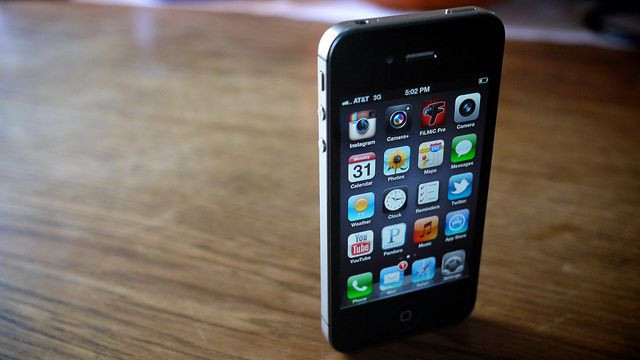Using Cell Phones As An Escape Mechanism In Some Situations Connected To Depression, Anxiety

According to the Pew Research Center, about 64 percent of Americans own a smartphone. For people between the ages of 18 and 29, nearly 93 percent reported using their phone to avoid boredom or the people around them. This fact stands out because a University of Illinois study has now linked addiction to mobile technology with depression and anxiety in college-aged students, but only in certain situations.
The research, published in Computers in Human Behavior, aimed to find whether a person’s addictive or self-destructive cell phone and Internet use had any relation to mental health. The researchers asked 318 students enrolled in psychology courses at the University of Illinois about their mental health, how much they used their cell phones and the Internet, and the reasons they turned to their phones. Some of the questions asked included, “do you think that your academic or work performance has been negatively affected by your cell phone use?" and "do you think that life without the Internet is boring, empty, and sad?"
"People who self-described as having really addictive-style behaviors toward the Internet and cellphones scored much higher on depression and anxiety scales," University of Illinois psychology professor Alejandro Lleras said in a press release.
The researchers found that people who were trying to escape negative thoughts, feelings, or experiences used their phones to do so. As for the 93 percent of 18 to 29 year olds who used their phone to get away from boredom, Lleras and his team found there was no connection between cell phone and Internet use when bored and negative mental health outcomes.
Interested in the correlation they found between poor mental health and increased use of cell phones as coping and avoidance tools, the researchers decided to dig a little bit deeper. For their follow-up study, the team brought together 84 University of Illinois undergraduates enrolled in psychology courses and separated them into three groups. The members of each had five minutes to write a paragraph about a personal flaw or weakness. To create a stressful environment for the participants, researchers told them that they would have to undergo a video interview explaining their responses and that graduate psychology students would analyze their paragraphs. Only those in one of the groups were allowed to keep their cell phones with them while they wrote.
The researchers found that those who were able to bring their cell phones into the stressful situation were much less likely to be negatively affected by stress compared to those in the other two groups.
"Having access to a phone seemed to allow that group to resist or to be less sensitive to the stress manipulation," Lleras said, but this connection was limited and short-lived. However, the experiment did lead the researchers to conclude that cell phones might be a type of comfort for some people in stressful situations.
Breaking addictive technology habits, Lleras believes, may be useful in treating those with depression or anxiety-induced disorders, but further research is needed to come to a definite conclusion.
Source: Panova T, Lleras A. Avoidance or boredom: Negative mental health outcomes associated with use of Information and Communication Technologies depend on users’ motivations. Computers in Human Behavior. 2016.
Published by Medicaldaily.com



























